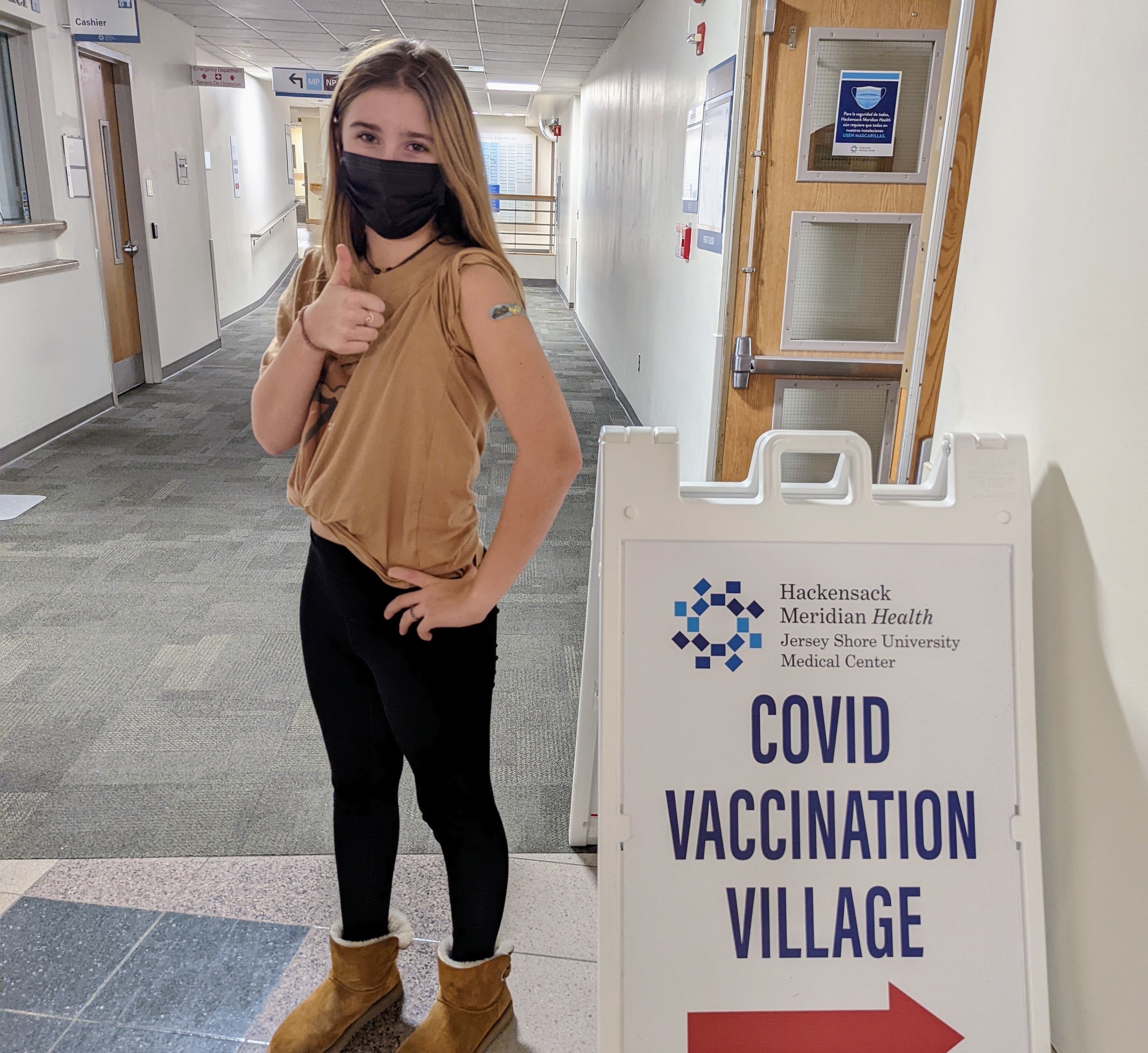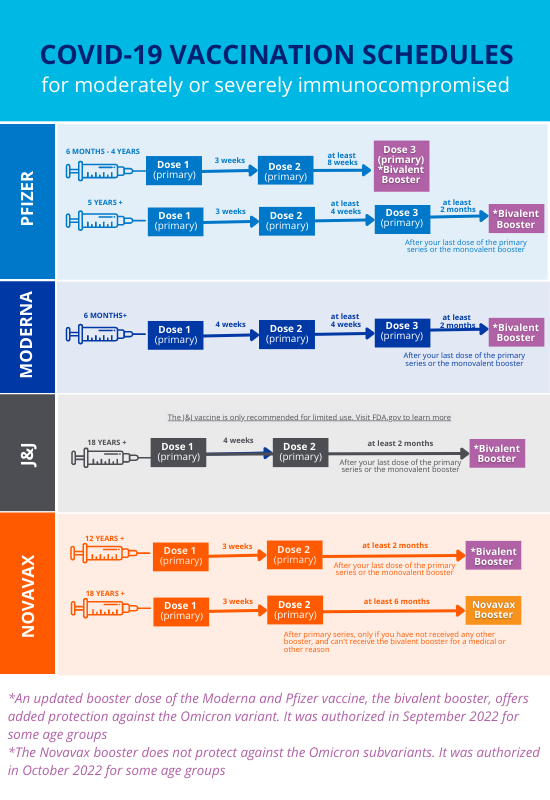COVID Boosters and Kids: What to Know

January 07, 2022
Updated: 1/5/23
Information regarding COVID-19 and vaccines are continually evolving, new details may be available since this content was developed. Please visit the CDC's website for the most up to date information.
Everyone six months of age and older is eligible and recommended to get a COVID-19 bivalent booster vaccine.
The bivalent booster focuses on targeting one of the original strains of COVID-19, as well as the BA.4 and BA.5 lineages of the Omicron variant, which is currently the most widespread variant.
“The ever-changing COVID-19 variants have put all of us on high alert - as the cold weather returns many of us to indoor activities,” shares Mariawy Riollano-Cruz, M.D., a pediatric infectious disease specialist at K. Hovnanian Children’s Hospital. “The high transmissibility of the variant makes it even more crucial for all of us to get boosted.”

Should I get my child boosted?
Yes, protection provided by the vaccine wanes over time and a booster dose reinvigorates your child’s body’s immune response.
“Many of our young COVID-19 patients are not fully vaccinated, and we’re seeing some children develop lasting COVID symptoms, such as difficulty breathing, exhaustion and trouble concentrating, long after infection.” adds Dr. Riollano-Cruz. “Vaccination and boosters continue to be a critical tool to prevent infection.”
When should my child get a booster shot?


Is the booster shot for kids safe?
Yes, according to data, the booster shot has been tested and is safe for children.
The FDA reviewed safety data from a study of more than 6,300 children aged 12 to 15 who received a booster dose in Israel, finding no new safety concerns for a booster in this population. No new cases of myocarditis or pericarditis were reported.
According to the FDA, no new safety concerns arose among the more than 4.1 million individuals aged 16 and older who received the booster in Israel. Serious side effects such as myocarditis and pericarditis from the booster are reportedly rare. Common side effects can include:
- Pain at the injection site
- Fatigue
- Redness and/or swelling at the injection site
- Headache
- Muscle pain
- Joint pain
- Chills
- Fever
- Nausea and/or vomiting
- Swollen lymph nodes under the arm that received the injection
Does the COVID-19 booster alter genetics?
No, the COVID-19 booster does not alter your genetics.
mRNA stands for messenger ribonucleic acid and can generally be described as instructions for your body on how to make a protein or even just a piece of a protein. mRNA is not able to alter or modify a person’s genetic makeup, or DNA.
The mRNA from a COVID-19 vaccine or booster never enters the nucleus of the cell, which is where our DNA is kept. Instead, COVID-19 vaccines that use mRNA send a message to our body’s natural defenses to safely develop protection (immunity) to the disease.
Does the COVID-19 booster shot cause heart issues in children?
No new cases of myocarditis or pericarditis were reported in the data from Israel.
Myocarditis occurs more frequently among those who have the COVID-19 virus, than those who got vaccinated. Learn more about myocarditis and the vaccine here.
Next Steps & Resources:
- Meet our source: Mariawy Riollano-Cruz, M.D., pediatric infectious disease specialist at K. Hovnanian Children’s Hospital, part of Hackensack Meridian Children’s Health.
- To make an appointment with Dr. Riollano-Cruz, or a doctor near you, call 800-822-8905 or visit our website.
The material provided through HealthU is intended to be used as general information only and should not replace the advice of your physician. Always consult your physician for individual care.
Find a doctor near me
COVID-19 Vaccine and Kids: Safety & What to Expect

COVID-19 vaccines have proven to be safe and effective in kids ages five and older in clinical trials. Here’s what parents should know.
Can Babies Get COVID-19?

Protect your baby from COVID-19. Learn about symptoms, vaccines, and when to seek medical care. Dr. Riollano Cruz offers expert advice. Call 800-822-8905.
Find a doctor near me

Reasons to Keep Your Child Home From School
Keep your child home from school? Dr. Sevilla shares when symptoms like fever, cough, or nausea warrant a stay home. Learn more and schedule an appointment.

How to ID Common Kid Bugs
Identify common childhood illnesses (RSV, cold, COVID-19, flu). Learn how to differentiate symptoms & protect your child. Call 800-822-8905.

ER vs. Urgent Care vs. Pediatrician
When your child gets sick, it can be hard to know - should you go to the emergency room (ER), urgent care or pediatrician?

Common Rashes in Kids & What to Do
Common kid rashes? Dr. Farook explains treatment options and when to seek care. Learn more and schedule an appointment today.
